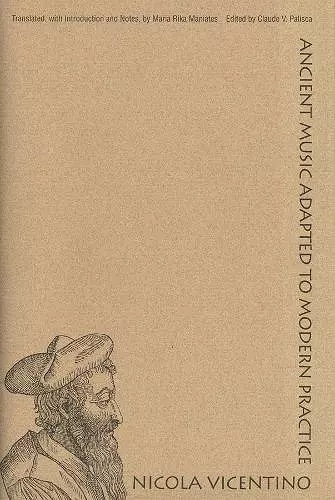Ancient Music Adapted to Modern Practice
Nicola Vicentino author Maria Rika Maniates translator Claude V Palisca editor
Format:Paperback
Publisher:Yale University Press
Published:30th Nov '11
Currently unavailable, and unfortunately no date known when it will be back

First published in 1555, Nicola Vicentino's influential treatise transformed music theory by adapting ancient Greek concepts to modern practices, challenging traditional counterpoint rules and emphasizing the emotional connection to texts.
Ancient Music Adapted to Modern Practice, first published in Rome in 1555 by Nicola Vicentino, stands as a pivotal work in the landscape of sixteenth-century music theory. This translation by Maria Rika Maniates marks the first English edition of Vicentino's influential treatise, which sought not only to document musical practices of the time but to transform them. Vicentino aimed to reshape the way composers approached their craft and how musicians understood the essence of music itself.
One of Vicentino's most significant contributions was his adaptation of ancient Greek musical concepts, particularly the chromatic and enharmonic genera, to the context of modern polyphony. This innovative approach allowed for a richer exploration of musical expression and emotion, particularly in relation to the content of both secular and sacred texts. Vicentino challenged the prevailing norms of his time, arguing that strict adherence to counterpoint rules should not stifle creativity. Instead, he advocated for a more flexible interpretation that would enable musicians to convey the emotional depth of the lyrics.
In her introduction, Maniates provides valuable insights into Vicentino's life and the intellectual currents that influenced his work. She explores the theoretical sources that shaped his ideas and the contemporary humanist thinkers who may have inspired him. Through this examination, readers gain a deeper understanding of Vicentino's revolutionary vision for music, which anticipated the ideas later championed by notable figures such as Vincenzo Galilei and Claudio Monteverdi.
ISBN: 9780300184167
Dimensions: unknown
Weight: 807g
560 pages